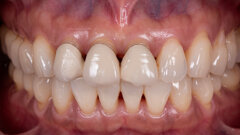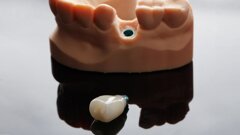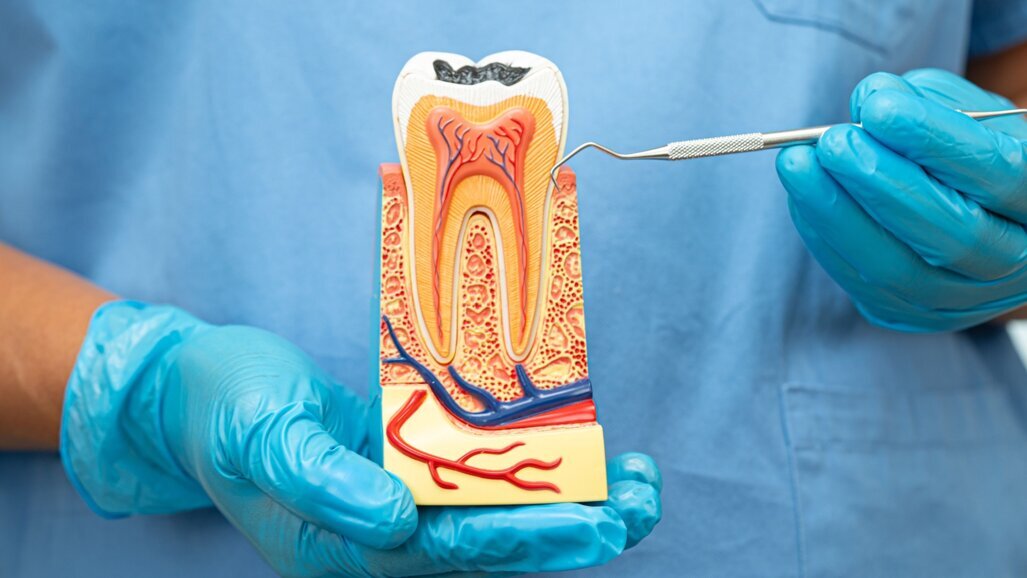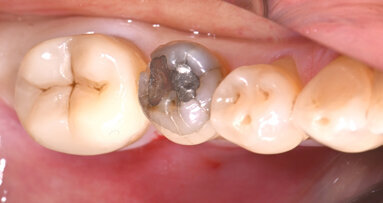XI’AN, China: To date, there have been no expert consensus, guidelines or recommendations on apical microsurgery. To address this and standardise the clinical application of apical microsurgery, the Chinese Stomatological Association convened a panel of experts in endodontics, periodontics and oral surgery to develop an expert consensus on the procedure, standardising its indications, contra-indications, surgical protocols and evaluation criteria. Their guidelines aim to enhance treatment outcomes and preserve natural teeth.
Apical microsurgery boasts a success rate exceeding 90%. However, the guideline authors explain that variability in clinician awareness and technique continues results in improper case selection, inconsistent surgical protocols, serious complications and low efficacy. By providing this structured framework, they seek to improve consistency in case selection, procedural execution and long-term monitoring.
The newly established expert consensus outlines clear indications for the procedure, such as persistent symptoms after root canal therapy or cases where root canal therapy or retreatment is not feasible. It also explains the contra-indications, including systemic conditions like uncontrolled hypertension and diabetes, as well as anatomical challenges such as proximity to vital structures. To assess the case regarding indications and contra-indications, the consensus sets out guidance on preoperative examination, emphasising thorough imaging, including CBCT, to assess the surgical site and ensure patient safety.
It also emphasises best practices for flap design, osteotomy, root-end resection, root-end preparation and bioceramic retro-filling. Guidance on microscope positioning and haemostatic techniques is also given.
The consensus stresses the importance of postoperative management, focusing on preventing infections, reducing pain and ensuring proper healing through long-term follow-up, recommending radiographic and clinical evaluations at three, six, 12 and 24 months postoperatively to assess healing. It also sets out potential complications—including maxillary sinus perforation, nerve injury and surgical site infections—and their management.
The consensus document highlights the importance of structured training for clinicians. It also calls for further research into evolving technologies, including piezoelectric surgery, augmented reality-guided procedures, and robotics, which could further refine microsurgical techniques.
With this expert-backed protocol, apical microsurgery is poised to contribute further to endodontic care, offering a reliable, minimally invasive solution for patients facing complex periapical conditions.
The study, titled “Expert consensus on apical microsurgery”, was published online on 2 January 2025 in the International Journal of Oral Science.
Topics:
Tags:
COLLEGE STATION, Texas, US: The methods dentists currently use to assess bone for implantation provide only indirect insights into bone mechanics. Since ...
Preparation of the access cavity represents the first operative stage of every endodontic treatment and plays a fundamental role in locating the root canal ...
AJMAN, UAE: For clinicians aiming to improve patient comfort and manage postoperative pain more effectively, recent research highlights two promising ...
LAMEZIA TERME, Italy: The selection of the restorative material is a crucial step in prosthodontics. Hybrid ceramics offer a range of properties well suited...
Internal root resorption (IRR) is the loss of dental hard tissue due to odontoclastic activity. In most cases, it is asymptomatic, and the aetiology is ...
Live webinar
Tue. 3 February 2026
7:00 pm EST (New York)
Live webinar
Wed. 4 February 2026
11:00 am EST (New York)
Live webinar
Thu. 5 February 2026
2:30 pm EST (New York)
Dr. Boota Ubhi BDS, FDS RCS (Edin), MDentSci, MRD RCS (Eng) Specialist, Cat Edney
Live webinar
Thu. 5 February 2026
8:00 pm EST (New York)
Dr. Zeeshan Sheikh Dip.Dh, BDS MSc, M.Perio, PhD, FRCDC, Dip-ABP
Live webinar
Tue. 10 February 2026
7:00 pm EST (New York)
Prof. Dr. Wael Att, Dr. Robert A. Levine DDS, FCPP, FISPPS, AOD, Dr. Larissa Bemquerer ITI Scholar at Harvard
Live webinar
Wed. 11 February 2026
11:00 am EST (New York)
Dr. med. dent. Sven Mühlemann
Live webinar
Wed. 11 February 2026
12:00 pm EST (New York)
Prof. Dr. Samir Abou Ayash



 Austria / Österreich
Austria / Österreich
 Bosnia and Herzegovina / Босна и Херцеговина
Bosnia and Herzegovina / Босна и Херцеговина
 Bulgaria / България
Bulgaria / България
 Croatia / Hrvatska
Croatia / Hrvatska
 Czech Republic & Slovakia / Česká republika & Slovensko
Czech Republic & Slovakia / Česká republika & Slovensko
 France / France
France / France
 Germany / Deutschland
Germany / Deutschland
 Greece / ΕΛΛΑΔΑ
Greece / ΕΛΛΑΔΑ
 Hungary / Hungary
Hungary / Hungary
 Italy / Italia
Italy / Italia
 Netherlands / Nederland
Netherlands / Nederland
 Nordic / Nordic
Nordic / Nordic
 Poland / Polska
Poland / Polska
 Portugal / Portugal
Portugal / Portugal
 Romania & Moldova / România & Moldova
Romania & Moldova / România & Moldova
 Slovenia / Slovenija
Slovenia / Slovenija
 Serbia & Montenegro / Србија и Црна Гора
Serbia & Montenegro / Србија и Црна Гора
 Spain / España
Spain / España
 Switzerland / Schweiz
Switzerland / Schweiz
 Turkey / Türkiye
Turkey / Türkiye
 UK & Ireland / UK & Ireland
UK & Ireland / UK & Ireland
 Brazil / Brasil
Brazil / Brasil
 Canada / Canada
Canada / Canada
 Latin America / Latinoamérica
Latin America / Latinoamérica
 USA / USA
USA / USA
 China / 中国
China / 中国
 India / भारत गणराज्य
India / भारत गणराज्य
 Pakistan / Pākistān
Pakistan / Pākistān
 Vietnam / Việt Nam
Vietnam / Việt Nam
 ASEAN / ASEAN
ASEAN / ASEAN
 Israel / מְדִינַת יִשְׂרָאֵל
Israel / מְדִינַת יִשְׂרָאֵל
 Algeria, Morocco & Tunisia / الجزائر والمغرب وتونس
Algeria, Morocco & Tunisia / الجزائر والمغرب وتونس
 Middle East / Middle East
Middle East / Middle East










































To post a reply please login or register